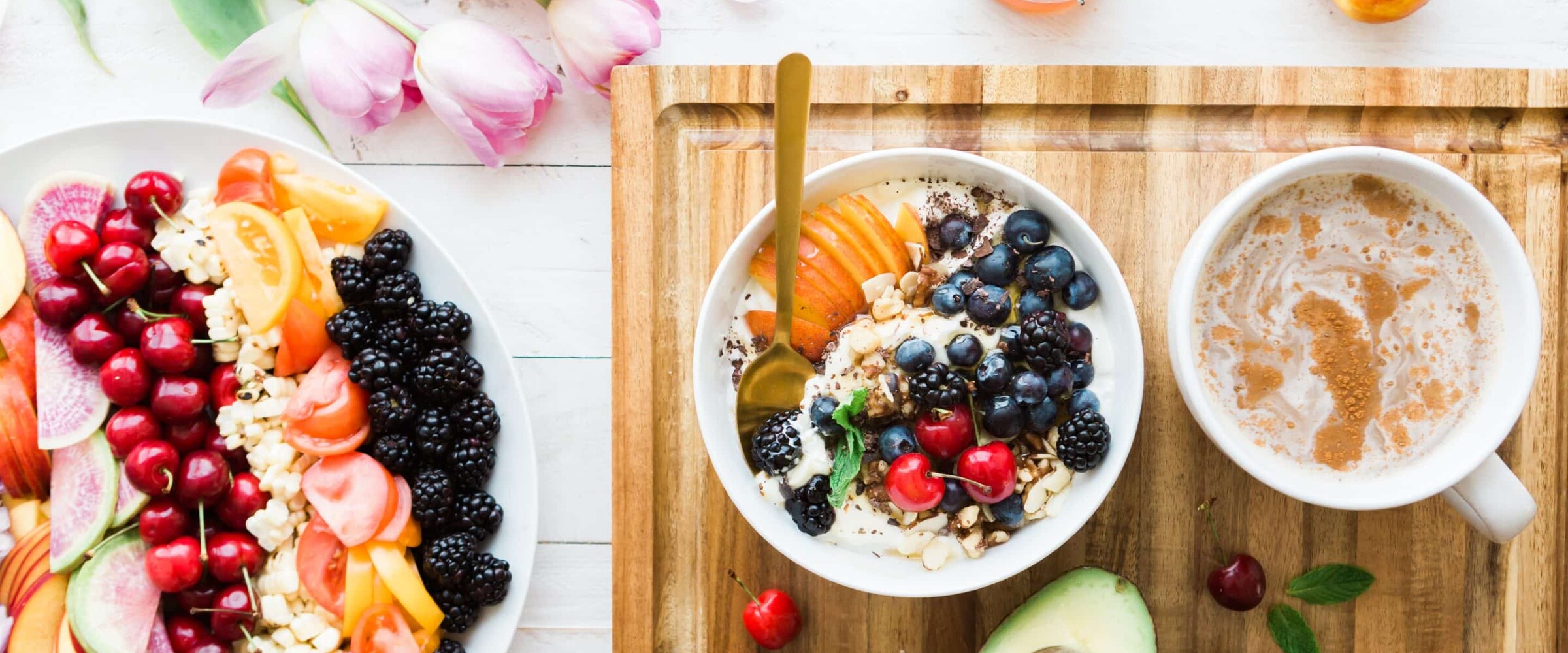
Improving IVF Chances With a Healthy Balanced Diet
IVF (In Vitro Fertilisation) is a wonderful process that provides a sense of hope to those struggling with fertility issues, helping them to start their families. Many aspects contribute to a successful round of IVF. While some may be out of your control, maintaining a healthy, balanced diet is something you can incorporate into your daily routines. Healthy eating helps give your body the support, energy and nutrients it needs to improve the chance of a successful IVF treatment. In this blog, we have looked at how good nutrition can help you on your fertility journey.
A Fertility-Friendly Diet
When it comes to keeping your body healthy and optimising the chance of successful IVF fertilisation, eating the right food can help make a difference.
Whole Foods:
Whole foods include foods such as; whole grains, vegetables, fruits, and legumes (beans, lentils, chickpeas, etc.) These types of food have some fantastic qualities that can support your body and encourage reproductive health; for example, vitamins C and E in fruits and vegetables are antioxidants that can help support healthy embryo development and protect cells against oxidative stress. Legumes and whole grains provide the body with fibre, helping to support hormonal balance which is important during an IVF treatment.
Protein:
When undergoing IVF treatment, ensuring your diet consists of adequate protein is important. The protein from foods such as meat, eggs, fish, tofu, and beans supply us with amino acids which play a range of vital functions in our bodies; for example, repairing cells, hormone production and maintaining healthy hormone levels - this is essential for regulating menstrual cycles and supporting an embryo’s implantation. Lean proteins are necessary for tissue repair and hormone production. Amino acids are also beneficial for developing healthy sperm, thanks to the cellular repair and growth they encourage.
Healthy Fats:
Introducing healthy fats into your diet is another way to help your body during IVF treatment.
Healthy fats include Omega 3 fatty acids, which are found in various foods, including, walnuts, chia seeds and fatty fish like salmon. Omega 3 fatty acids help with inflammation, hormone regulation, encourage good blood flow to reproductive organs, and reduce sperm cell oxidative stress.
Vital Nutrients to Aid IVF
There are several nutrients which are essential for reproductive health;
Folic Acid: You can get folic acid from leafy greens, legumes, fortified cereals, and more. Folic acid can improve sperm health, help the embryo to develop, and play a key role in DNA synthesis and cell division.
Vitamin D: Good vitamin D levels can be helpful for IVF treatments. Coming from foods such as fortified milk, fatty fish and egg yolks, vitamin D can benefit the quality of both the egg and sperm and help create a suitable environment for the embryo to grow.
Zinc: Zinc is another crucial nutrient that could help improve the chance of successful IVF fertilisation. For men, it can encourage sperm health and healthy testosterone production, and for women, it can help with hormone regulation, egg quality and early embryo development.
What to Avoid?
- Alcohol should be avoided when undergoing IVF treatment. Not only does it negatively affect liver function, but it can impact hormone regulation. Alcohol also can cause dehydration, which is not conducive to conceiving. It is important to hydrate yourself well when you are taking stimulation medications.
- Caffeine levels should be enjoyed in moderation. It is advised to limit your caffeine intake before and during fertility treatment. Caffeine causes an increase in heart rate and blood pressure, and can affect metabolism and increase urine output..
- Processed foods are full of additives, sugar and trans fats, which can cause weight gain and impact the quality of eggs and hormonal balance.
Handy Tips for Healthy Eating
- Take the time to do your research and understand which foods will give you the vitamins and minerals you need; planning out your meals for the week will allow you to see if your diet is balanced.
- If you’re feeling peckish between meals, choose healthy snacks; opt for fruits, yoghurts or nuts rather than chocolate, sweets and crisps.
Contact our Team to Learn More
If you and your partner are looking into IVF treatment, Sims IVF is here to help.
We have been helping people struggling with fertility since 1997. We understand that every case is different and treatment must be tailored to every client to ensure the most effective process, this is why we offer a range of options including; ICSI, IVF, donor sperm, and genetic testing such as PGT-A and PGT-M.Our experienced, friendly and compassionate team are at your side each step of the way, guiding you through the process and answering your questions.
If you are starting to prepare your body for IVF treatment and are looking to change your diet, we would recommend a Mediterranean-style diet. This low glycemic index diet features whole grains, vegetables, healthy fats, fish, and more, and looks to make you healthier and improve your chances of fertility.
To contact our team and find out more about our services, please visit our website, where you can get more information and find our contact details.

